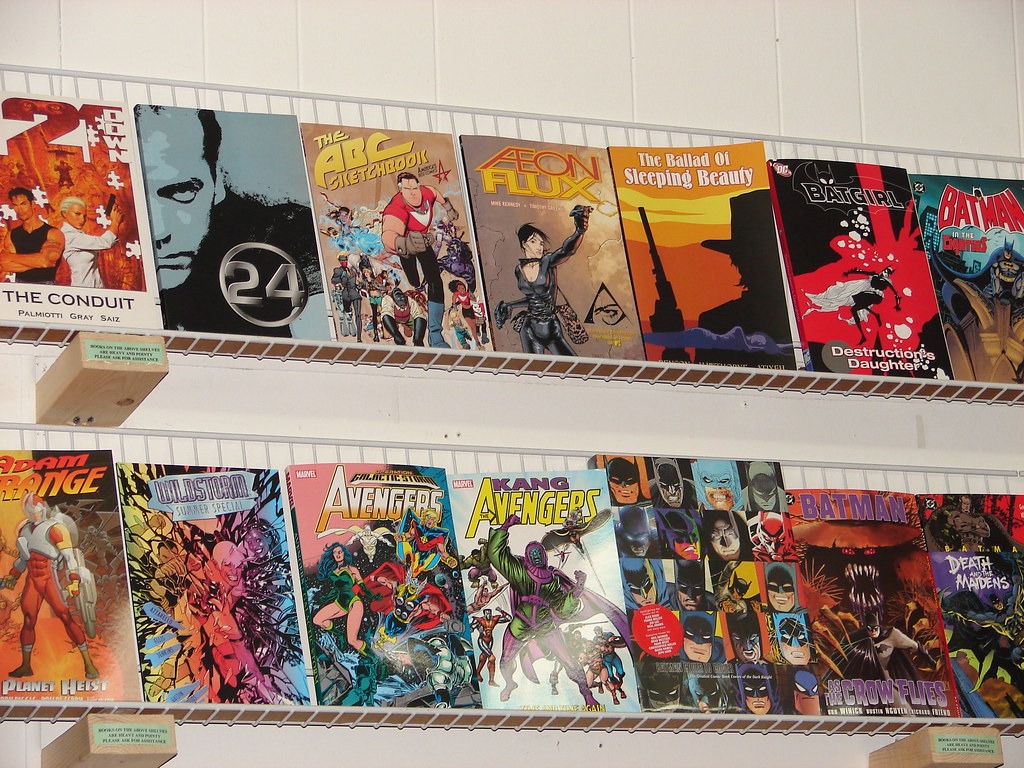In defence of graphic novels
In literature, there has always been a certain snobbiness about which forms are better. Pulp novels always sit below literary fiction, for example, and there has always been a certain disdain towards the graphic novel. People head into Waterstones and, seeing graphic novels on the shelf, they scoff. But why do they have this reputation when the graphic novel is, to my mind, one of the strongest forms of literature there is?
Graphic novels, perhaps more so than any other genre (with the possible exception of Mills & Boon books), are associated with a particular reader – nerdy, teenage boys – and that’s a massive injustice. The proliferation of ‘nerd culture’ this past decade should surely have helped break down this preconception, but that simply hasn’t happened. To actively seek out the graphic novel is not a done thing.
Then, the accusation that these are just superhero stories, and thus then can be nothing substantial to them. Graphic novels have always had an eye on bigger topics, and the mixture of words and images enables it to discuss these things on two fronts. Go and read something like Art Spiegelman’s Maus, a graphic novel that offers a haunting depiction of the Holocaust and muses on the ideas of memory and guilt. It’s an easily accessible and yet thematically weighty text, and it was the first graphic novel to claim a Pulitzer Prize (I highly recommend it, if you haven’t read it).
Can we not recognise that they operate differently and praise them for that?
I mean, I could offer a big list of graphic novels that boast compelling stories (I’ll settle for a few – V for Vendetta, Persepolis, The Killing Joke), so that’s clearly not the issue. Perhaps it is the actual format of the graphic novel itself? That is another question to tackle – how can something so art-based qualify as literature? It certainly strips away the amount of imagination required to visualise a character or a setting by actually presenting them, but is that such a big issue?
Instead of comparing the storytelling process of the graphic novel to that of a prose novel, can we not recognise that they operate differently and praise them for that? In a sense, the graphic novel has several authors – the artist and the writer – and they both bring different strengths to the process. Their interactions result in a medium that focuses on dialogue and visual storytelling to communicate a tale – it’s just a different form of literature, not a lesser one.
One last point to make – this reception to graphic novels is primarily an English/American one. Manga is considered a valid form of social commentary in Japan, and it is possible to do serious academic study of it. Europe also has a strong tradition of bande dessinée, and the graphic novel is very well respected in France, Belgium and the Netherlands. Our culture seems to be against the graphic novel mainly because it is not part of our literary tradition.
Now, in defending them, I’m certainly not suggesting that all graphic novels are good, or worthy of your time. You can explore, and find ones you’ll like, but as with any form of literature, some are better-crafted than others. However, the number of young readers is falling, and the ‘good’ books are falling out of fashion (who honestly greets a Booker Prize shortlist with anything more than an indifferent shrug?). Surely anything that gets people reading should be welcomed?

Comments